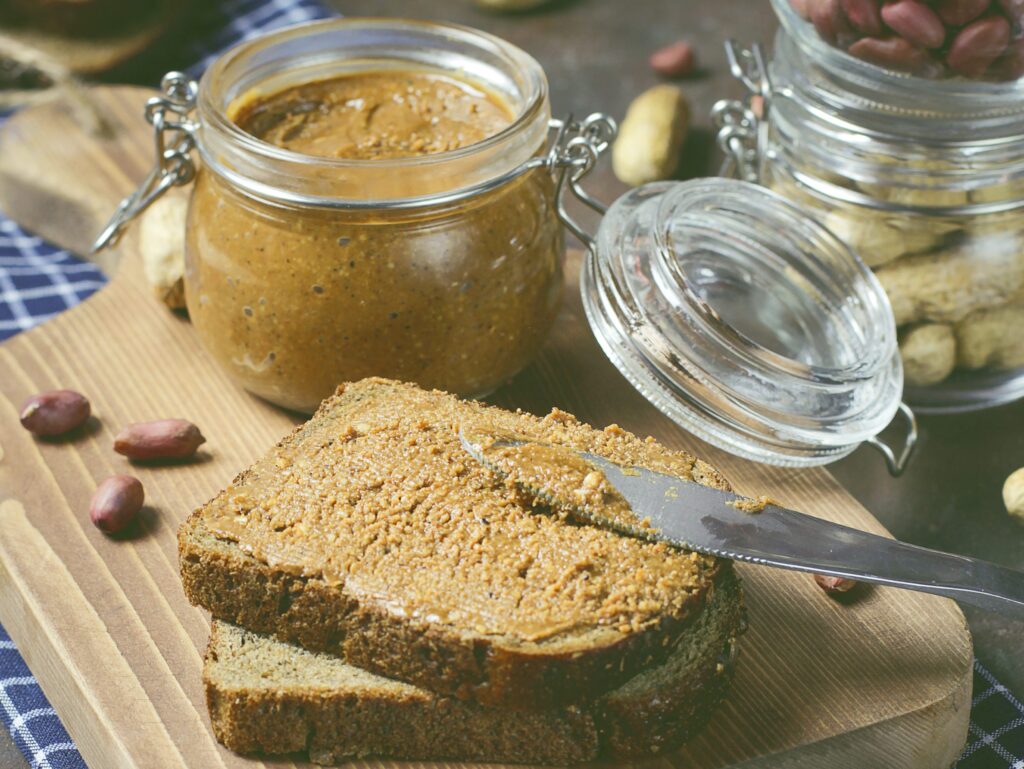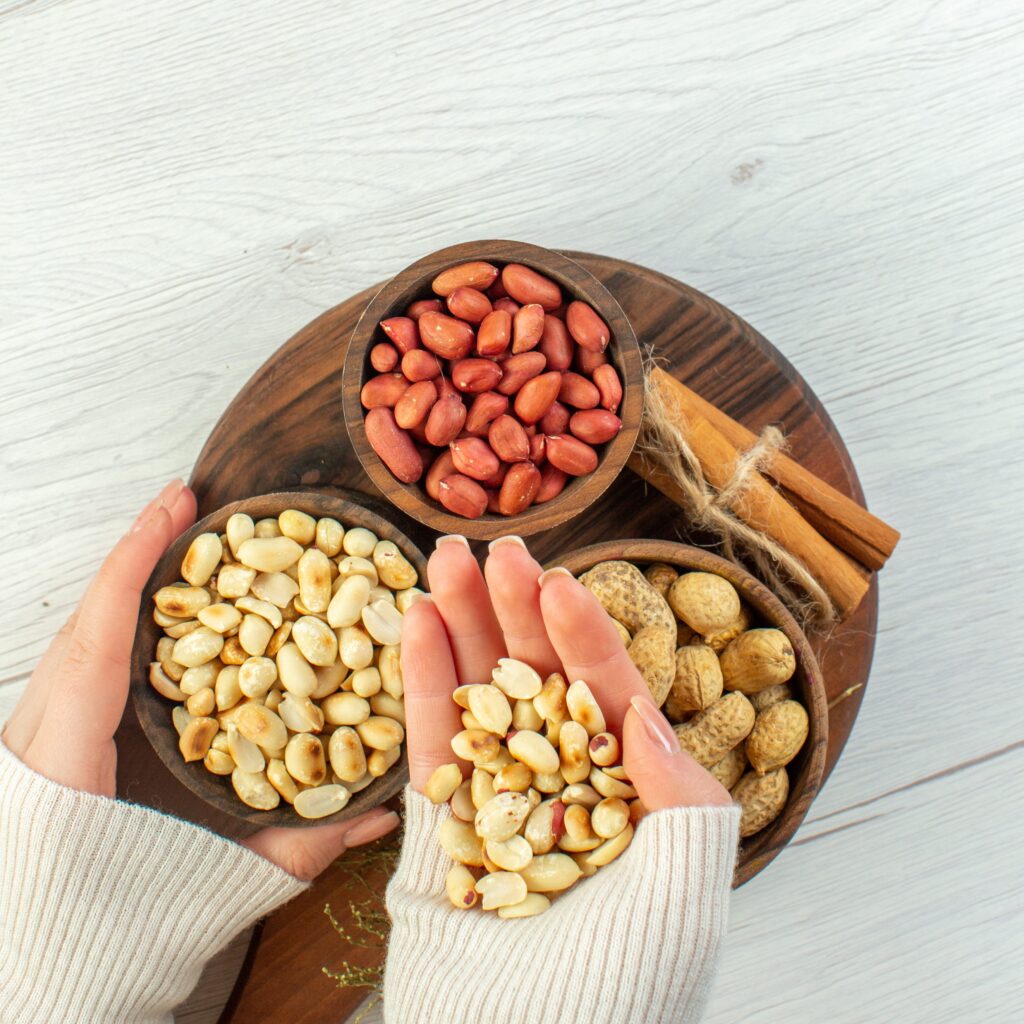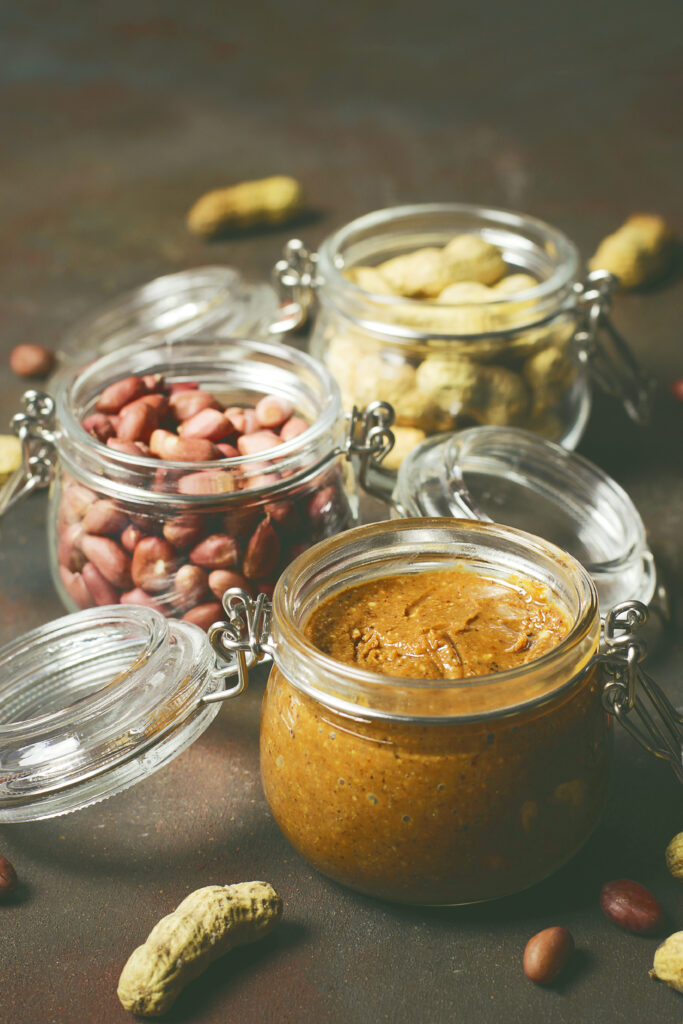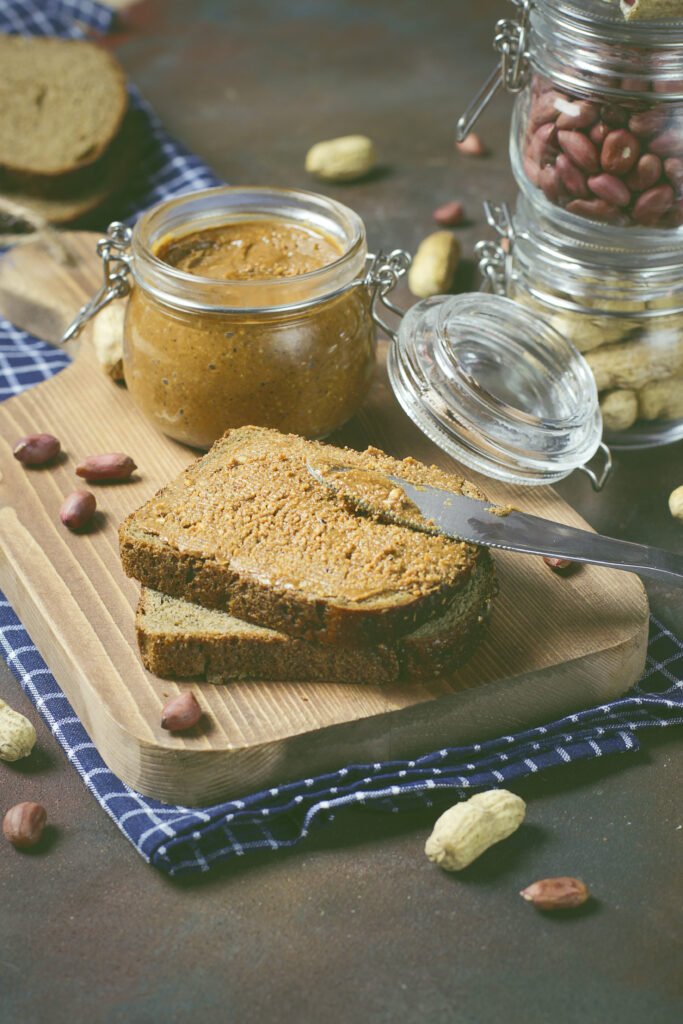Homemade peanut butter and factory-made peanut butter each have their own advantages and disadvantages, so it ultimately depends on your personal preferences and priorities.

Homemade peanut butter allows you to control the ingredients, such as adding or reducing salt or sugar, and you can use high-quality peanuts to ensure the peanut butter is fresh and free of preservatives. Homemade peanut butter also allows for customization by adding additional ingredients such as honey or cocoa powder.

On the other hand, factory-made peanut butter can be more convenient and cost-effective. It is readily available in stores and can be purchased in large quantities. Additionally, some commercial brands may fortify their peanut butter with additional nutrients like protein and fiber.
Ultimately, if you prioritize control over the ingredients and enjoy making your own food, then homemade peanut butter may be the best option for you. However, if convenience and cost are your top priorities, then factory-made peanut butter may be the better choice.
What are the benefits of Peanut Butter?
Peanut butter has several potential health benefits when consumed as part of a balanced diet. Here are some of the benefits of peanut butter:
- Rich in nutrients: Peanut butter is a good source of protein, healthy fats, fiber, and essential vitamins and minerals, including vitamin E, magnesium, and potassium.
- Promotes heart health: Peanut butter contains healthy monounsaturated and polyunsaturated fats that may help lower cholesterol levels and reduce the risk of heart disease.
- Helps control blood sugar: The protein and healthy fats in peanut butter can help slow down the absorption of sugar in the bloodstream, which may help regulate blood sugar levels.
- Promotes weight loss: The protein and fiber in peanut butter can help you feel full for longer periods, which may help reduce overall calorie intake and promote weight loss.
- May reduce the risk of certain diseases: Studies have suggested that consuming peanuts and peanut butter may reduce the risk of certain diseases, including diabetes, cancer, and Alzheimer’s disease.
- Versatile and convenient: Peanut butter can be used in a variety of recipes, including smoothies, oatmeal, and baked goods. It’s also a convenient snack that can be eaten on its own or with other foods.
It’s important to note that while peanut butter has potential health benefits, it’s also high in calories, so it should be consumed in moderation as part of a balanced diet. It’s also essential to choose natural peanut butter or brands that have minimal added sugars and oils.
How to make peanut butter at home?

Making peanut butter at home is a simple process and requires only a few ingredients. Here’s a basic recipe to make peanut butter at home:
Ingredients:
- 2 cups of roasted peanuts (with or without salt)
- 1-2 tablespoons of oil (such as vegetable oil, peanut oil, or coconut oil)
Instructions:
- Place the roasted peanuts in a food processor or high-powered blender.
- Pulse the peanuts for 1-2 minutes until they begin to break down and form a chunky mixture.
- Add the oil to the mixture and continue blending until it becomes smooth and creamy. Add more oil if necessary to achieve the desired consistency.
- Taste the peanut butter and add salt or sweetener (such as honey or maple syrup) as desired.
- Transfer the peanut butter to a clean jar with a tight-fitting lid and store in the refrigerator for up to 2 weeks.
Note: You can also experiment with adding other ingredients such as cocoa powder, cinnamon, or vanilla extract to give your peanut butter a unique flavor.

What is the shelf life of home made peanut butter?
The shelf life of homemade peanut butter can vary depending on the storage conditions and the ingredients used. Generally, homemade peanut butter can last for 1-2 weeks when stored in an airtight container in the refrigerator.
If you use fresh peanuts and store your peanut butter properly, it may last up to 3 weeks. However, if you notice any changes in the color, texture, or smell of your peanut butter, it’s best to discard it.
To extend the shelf life of homemade peanut butter, you can also freeze it in an airtight container for up to 3 months. When you’re ready to use it, let it thaw in the refrigerator overnight before using.

Important things about peanut butter?
some important things to keep in mind about peanut butter:
- Allergies: Peanut butter is a common allergen, and it can cause severe allergic reactions in some people. If you or someone you know has a peanut allergy, it’s important to avoid peanut butter and all products that contain peanuts.
- Nutritional value: Peanut butter is a good source of protein, healthy fats, and fiber. However, it’s also high in calories and should be consumed in moderation as part of a balanced diet.
- Added ingredients: Many commercial peanut butters contain added ingredients such as sugar, salt, and hydrogenated oils. When choosing peanut butter, look for brands that have minimal added ingredients or make your own at home using natural ingredients.
- Storage: Peanut butter should be stored in an airtight container in a cool, dry place. If the peanut butter has separated, stir it well before using. Once opened, it’s best to store peanut butter in the refrigerator to extend its shelf life.
- Contamination: Peanut butter can become contaminated with bacteria or mold if it’s not stored properly or if it’s consumed past its expiration date. Always check the expiration date before consuming peanut butter and discard any that has an off smell or taste.
- Usage: Peanut butter can be used in a variety of ways, from spreading it on toast to using it as a dip for fruits and vegetables. However, it’s important to monitor your portion sizes to avoid consuming too many calories.
In conclusion, peanut butter can be a nutritious and versatile addition to a healthy diet. It’s important to choose natural peanut butter or brands with minimal added sugars and oils, consume it in moderation, and consider any allergies or dietary restrictions. If you have any concerns about incorporating peanut butter into your diet, consult with a healthcare professional or registered dietitian for personalized advice.
